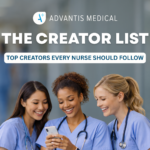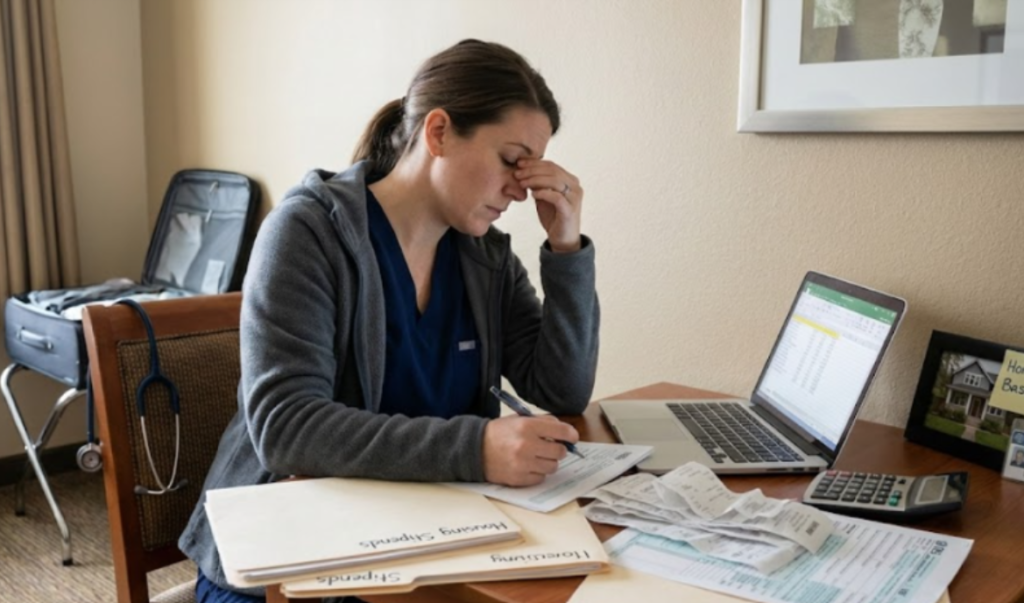In celebration of Black History Month, Advantis Medical is taking a moment to look back and honor some of the many Black healthcare leaders who have changed the industry.
This list covers more than just inventors and doctors; it highlights pioneers who refused to accept the status quo. These individuals developed life-saving surgical procedures, invented critical medical devices, and broke down racial barriers that had stood for generations. Some improved access to care for underserved communities, while others brought attention to neglected health issues. Their influence is still felt today in research labs, hospitals, and clinics around the world.
Here are 9 Black healthcare leaders whose achievements reshaped history.
List of Black Nurses and Doctors who Made History

James McCune Smith: First African American Medical Degree
James McCune Smith was born in New York City in 1813 to parents who had gained their freedom. Even as a young man, he knew he wanted to be a doctor. Since he was Black, American colleges denied him admission. Unwilling to accept rejection, he crossed the ocean to attend the University of Glasgow in Scotland. By the time he was 24, he had completed his Bachelor’s, Master’s, and Medical degrees.
Smith was also a linguist, mastering French, Latin, and Greek. When he returned to New York City in 1837, he opened a pharmacy and medical practice at 93 West Broadway. He is credited as the first first African American with a medical degree to run a pharmacy and medical practice. He treated both Black and White patients and served as the chief doctor at the New York City Colored Orphan Asylum.
Beyond medicine, Smith dedicated his life to the abolitionist movement. He died in 1865, just weeks before the passage of the 13th Amendment, which finally abolished slavery.
Rebecca Lee Crumpler: First African American Woman Physician
Born in Christiana, Delaware, in 1831, Rebecca Lee Crumpler started her career as a nurse, a role that shaped her lifelong commitment to helping others. In 1864, she graduated from the New England Female Medical College, making history as the first African American woman physician in the U.S.
Her work focused heavily on caring for women, children, and the poor. In 1883, she published A Book of Medical Discourses, one of the first medical texts written by an African American physician. In it, she noted that she simply “sought every opportunity to relieve the suffering of others.” Crumpler’s legacy of compassion continued until her passing in 1895
Daniel Hale Williams: Pioneer of Cardiac Surgery
Daniel Hale Williams, born in Pennsylvania in 1856, faced a medical landscape where Black doctors and nurses were often barred from staff positions. In response, he took action. After earning his medical degree and working as a surgeon in Chicago, he opened Provident Hospital in 1891—the first Black-owned interracial hospital in the country.
This hospital offered Black interns training and created the first school for Black nurses in Chicago.
In July 1893, he successfully repaired the pericardium of a man stabbed in a fight. As one of the first successful surgeries on the pericardium, Daniel Williams is considered the first African American cardiologist. He co-founded the National Medical Association and became the first Black healthcare leader admitted into the American College of Surgeons. He passed away in 1931.
Solomon Carter Fuller: First Black Psychiatrist & Alzheimer’s Researcher
Born in Monrovia, Liberia, in 1872, Solomon Carter Fuller came from a family of medical missionaries, which sparked his early interest in the field. He graduated from Boston University in 1897, becoming the first Black psychiatrist in the United States.
Fuller’s contribution to neurology is massive. In 1904, he worked alongside Alois Alzheimer in Germany, studying the physical traits of dementia. Fuller was responsible for translating much of this groundbreaking research from German to English. Upon returning to the U.S., he continued his work on Alzheimer’s disease, schizophrenia, and depression, eventually publishing the first comprehensive review of Alzheimer’s disease in 1912.
Charles Drew: The Father of the Blood Bank
Charles Drew, born in Washington, D.C. in 1904, changed the way the world handles emergency medicine. While in medical school at McGill University, he became fascinated by blood transfusions. His research led to the discovery that blood plasma could be dried, stored, and reconstituted later, which allowed for much longer storage times than whole blood.
During World War II, Drew directed Britain’s first blood bank project, saving thousands of lives. He was also pivotal in setting up the American Red Cross blood bank, serving as its director in 1941. However, when the military ordered the segregation of African American blood from White blood, Drew resigned in protest, refusing to support a scientifically baseless policy. Despite this, his innovations remain the foundation of modern blood banking
Jane Cooke Wright: Research Leading to Chemotherapy Treatments
Jane Cooke Wright was born in 1919. Her father was one of the first African American graduates of Harvard Medical School and the first Black police surgeon in New York City. Following in his footsteps, Jane earned her medical degree and joined her father at the Cancer Research Foundation in Harlem.
Together, they researched chemotherapy drugs that put leukemia and lymphoma patients into remission. In 1952, at the age of 33, she became head of the Foundation. She created a technique that allowed testing drugs on patient tissue rather than lab mice. Her research helped transform chemotherapy from a last resort into a viable, standard treatment for cancer.
Otis Boykin: Inventor of the Pacemaker Control Unit
Otis Boykin was born in 1920 in Dallas, Texas. During his career, he patented 28 electronic devices. While he is known for creating resistors that made computers and televisions more affordable to produce, his most vital contribution was to the pacemaker.
A pacemaker relies on electrical impulses to maintain a regular heartbeat. Boykin invented a control unit that regulated these impulses with extreme precision. This invention significantly improved the reliability of the device, ultimately saving countless lives.
Patricia Bath: Inventor of the Laserphaco Probe
Born in Harlem in 1942, Patricia Bath spent her career breaking glass ceilings. In 1973, she was the first African American to complete an ophthalmology residency at New York University. Two years later, she became the first female faculty member in UCLA’s ophthalmology department.
In the early 1980s, Bath turned her attention to laser technology. By 1986, she had invented the Laserphaco probe, a device that revolutionized cataract surgery and restored sight to patients around the world. In 1988, she patented the device, becoming the first African American woman doctor to receive a patent for a medical invention.
Jocelyn Elders: First Black Surgeon General
ocelyn Elders was born in 1933 in Arkansas. The oldest of eight children, she grew up in a segregated, poverty-stricken area and worked in cotton fields from the age of five, often missing school during harvest time. Despite these hardships, she earned a scholarship to Philander Smith College.
After serving in the U.S. Army, she attended medical school on the GI Bill. In 1978, she became the first board-certified pediatric endocrinologist in Arkansas.
She served as head of the Arkansas Department of Health from 1987 to 1992. In 1993, President Bill Clinton appointed her as the U.S. Surgeon General, making her the first Black Surgeon General and the second woman to hold the position. She remains a powerful voice for public health education.
Honoring the Legacy & Building the Future
The impact of these Black healthcare leaders extends far beyond Black History Month. Without their resilience and innovation, modern medicine would not be what it is today. By learning their stories, we preserve medical history and recognize the individuals who paved the way for today’s diverse healthcare workforce.
At Advantis Medical, we are inspired by the legacy of these pioneers. Our mission is to empower the next generation of healthcare professionals by connecting talented nurses and allied health workers with opportunities where they can build their own legacy of care.
Explore travel nursing jobs and find a role where your skills and dedication can make a difference in someone’s life every day.









